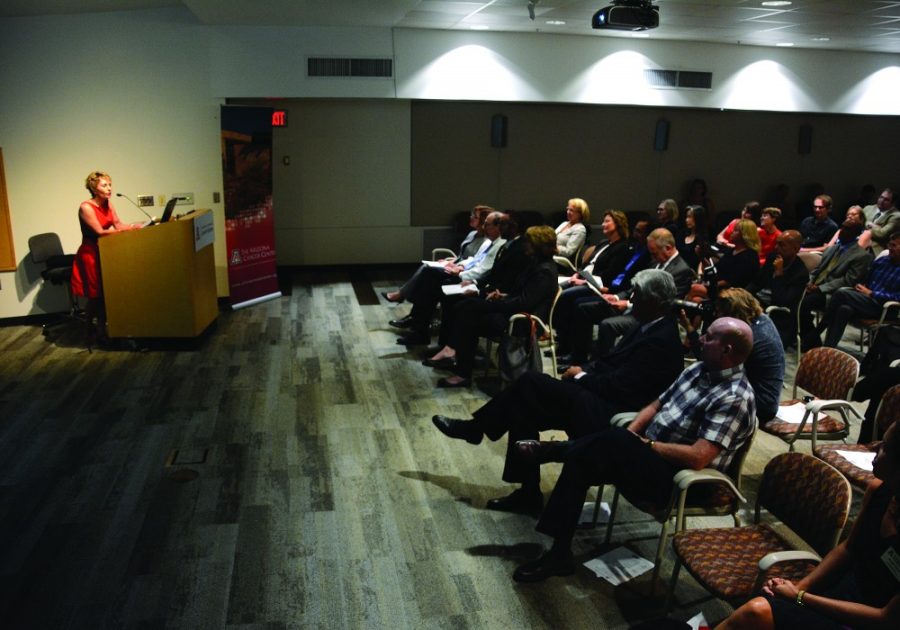This week, the UA Cancer Center celebrated the renewal of its prestigious designation, their 40th anniversary and the five-year, $17.6 million cancer center support grant they recently received from the National Cancer Institute.
Established in 1976, the center is one of 45 comprehensive cancer centers in the nation, which is the highest designation given by the NCI, according to Meredith Mullins, UACC’s associate director of administration.
Mullins said the NCI awards different cancer centers support grants, typically lasting five years, which is the longest cycle given by the NCI.
Once a cycle is up, a cancer center has to reapply and compete for the grant. Six months ago, that was the case for the UACC.
Mullins said the center’s cycle of receiving the grant had been up for a couple of years and, even though they were late on reapplying, the center was given permission to submit the application later because of the arrival of the center’s new director, Dr. Andrew Kraft.
RELATED: UA teams up with Diamond Children’s to create hospital education program
Mullins said Kraft was responsible for putting together the grant proposal. Kraft provided the tools, templates and a timeline for 30 different scientific authors to write in the same voice and stay on track. Mullins also helped write certain sections and edit the proposal.
Normally, a cancer center sets aside two years to complete the drafting and submitting process, but the UACC finalized and presented the 1500-page proposal in only six months, according to Mullins.
Mullins said it was possible to complete this proposal in such a short amount of time because all the scientists she worked with were committed to the opportunity.
The $17.6 million grant is one of the largest grants the university has, according to Joe G.N. “Skip” Garcia, senior vice president for UA health sciences.
He said the grant will be focused on two important elements of the cancer center: Paying for a portion of shared resources and paying a certain amount of salary to the scientists and administration.
RELATED: UA opens new research center focused on treating pediatric autoimmune disorders
Garcia said receiving this prestigious award helps keep Arizona and the UACC recognizable on the national level, and the renewal of this award was accomplished during challenging circumstances of leadership stepping down.
He said the morale was low at the cancer center, but thanks to the arrival and leadership of Kraft, the UACC was brought back to where it stands today.
Garcia said that because of this award, Arizona communities have access to the cutting-edge cancer therapies that they deserve.
Kraft and Garcia said the UACC has made tremendous impacts throughout its 40 years of operation and continues to expand and grow.
Kraft said what makes the UACC unique is that it helps cure and limit the effects of cancer for all people throughout the state.
“We want to make sure we reach out to the diverse population in Arizona,” Kraft said. “We want to make sure everybody gets the opportunity for prevention, treatment and cure equally.”
The UACC has been able to stay a leader of cancer research for decades because the center continues to recruit the best throughout the country, according to Garcia.
Garcia said that it is not hard to recruit the best because UACC is a poster child for the high-quality health science landscape.
He said if recruits care about diverse populations and health disparities and they want to be at a great place, the UACC fortunately has that.
“I think everyone realizes that the patients are the main focus, and their research will lead to better patient care,” Kraft said.
Follow Elizabeth O’Connell on Twitter.















